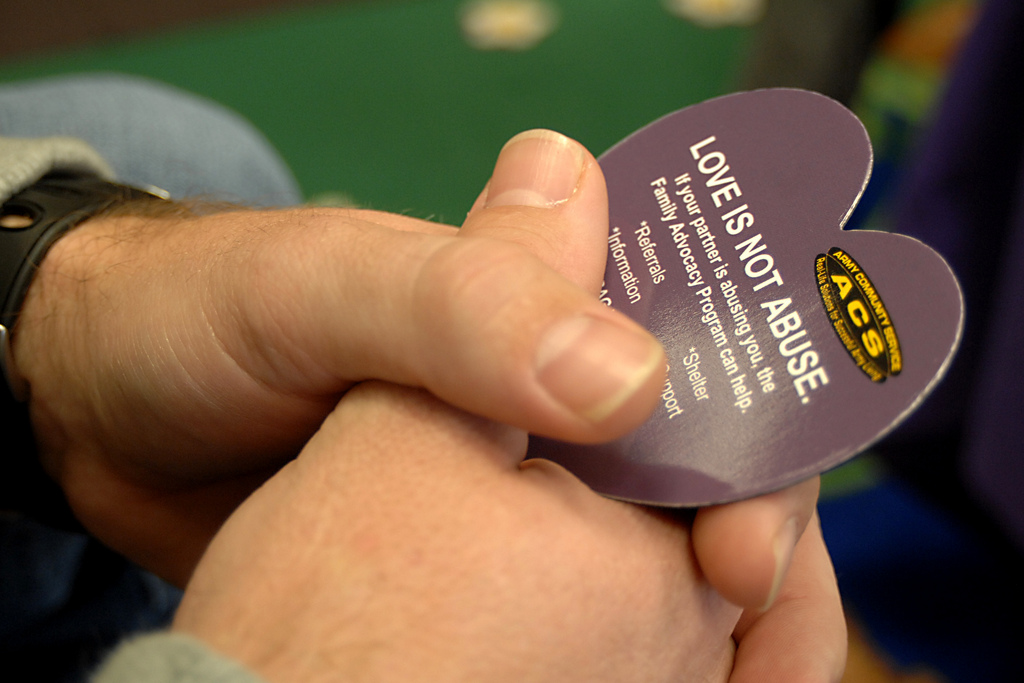Domestic violence causes homelessness. And many homeless women are survivors of domestic violence.
October is Domestic Violence Awareness month and in recognition, a nonprofit dedicated to addressing the problem brought a presentation to the monthly meeting of the Coalition of Homeless and Housing Organizations (COHHO.)
Tamaso Johnson, policy attorney with the DC Coalition Against Domestic Violence, offered national statistics to show the severity of violence in the homeless community.
“Ninety percent of homeless women are abused at some point in their lives,” he said. “Domestic violence is a major contributor to homelessness.”
The National Alliance to End Homelessness, offers similarly grim findings. That organization cites a study from Massachusetts that found 92 percent of homeless women had experienced severe physical or sexual assault at some point in their lives, 63 percent had been victims of violence by an intimate partner and 32 percent had been assaulted by their current or most recent partner.
Some victims become homeless only after fleeing from an abusive partner. They find themselves without a steady income, suffering from anxiety, depression or substance abuse, and in need of help with rebuilding their lives.
Johnson said that although domestic violence is typically associated with women, he hoped to extend helpful services to other members of the community including more men and transgender people.
“These are groups who have been left out in the past. Everybody, no matter what sexual orientation, should have support,” he said.
The presentation led into a wider discussion about homelessness itself and the vulnerability of people experiencing homelessness. Some of the homeless people at the meeting said they did not feel they could call the police for help. Others pointed out the problem would only be solved by eliminating homelessness.
Cheryl K. Barnes, a 63-year-old woman who battled homelessness for 35 years, said the programs that provide housing should try harder to provide for those who are more needy than others.
“Although I now have housing, I do not feel I am worthy of that housing because I have friends who are worse off,” she said.
Eric Sheptock, an advocate for the homeless, said providers of services need to put more energy into trying to end homelessness instead of providing services to maintain it.
“We need macro solutions … don’t ask me what my issues are. Provide minimum wage jobs and let those who are functional go after those opportunities,” Sheptock said.








